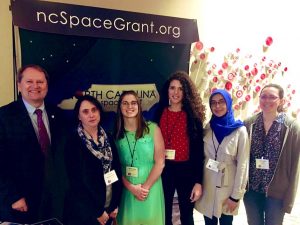John Kiss

Dean Emeritus, College of Arts & Sciences
Biology
Email Address: jzkiss@uncg.edu
Phone: 336.334.5607
ABOUT
John Z. Kiss served as Dean of the College of Arts and Sciences at UNCG from 2016 – 2024, and his academic appointment is as Professor of Biology. He served as Dean of the Graduate School at the University of Mississippi from 2012-16. John was on the faculty of Miami University (1993-2012) where he was a University Distinguished Professor and Chair of the Botany Department. He has been an instructor in 15 different courses ranging from introductory biology for first year students to advanced graduate courses. He also has mentored 57 independent research projects by undergraduates and has served as major professor for 14 M.S. students, 8 doctoral students, and 7 post-doctoral scholars.
John’s research focuses on the gravitational and space biology of plants, and he has published 119 peer-reviewed papers. He also has been invited to present seminars based on his research at universities throughout the US and in another 12 countries. He served as PI on grants from NASA, USDA, NSF, and the NIH (career total = $6.0 million) as well as PI on eight spaceflight experiments on the Space Shuttle and the International Space Station. In 2014, he received the NASA Outstanding Public Leadership Medal “for exceptional contributions in spaceflight research in the fundamental biology of plants in support of NASA’s exploration mission.” In 2021, he received the International Cooperation Medal from the Committee on Space Research (COSPAR), and asteroid Kiss 8267 was named in his honor.
John was President of the Midwestern Section of the American Society of Plant Biologists (2001-02) and the American Society of Gravitational and Space Biology (2003-04). He has major editorial activities including currently serving as an Associate Editor for the American Journal of Botany and as a former Editor for Advances in Space Research. Most recently, John has served as the President of the Conference of Southern Graduate Schools (2015-16).
More about Dean Kiss
SOMEDAY WE WILL LIVE ON MARS
Dean John Z. Kiss discusses his time as a research leader at NASA at his TEDxGreensboro talk. Dr. Kiss has had over 80 students work with him on space research to understand the role of gravity and light in plant development.
